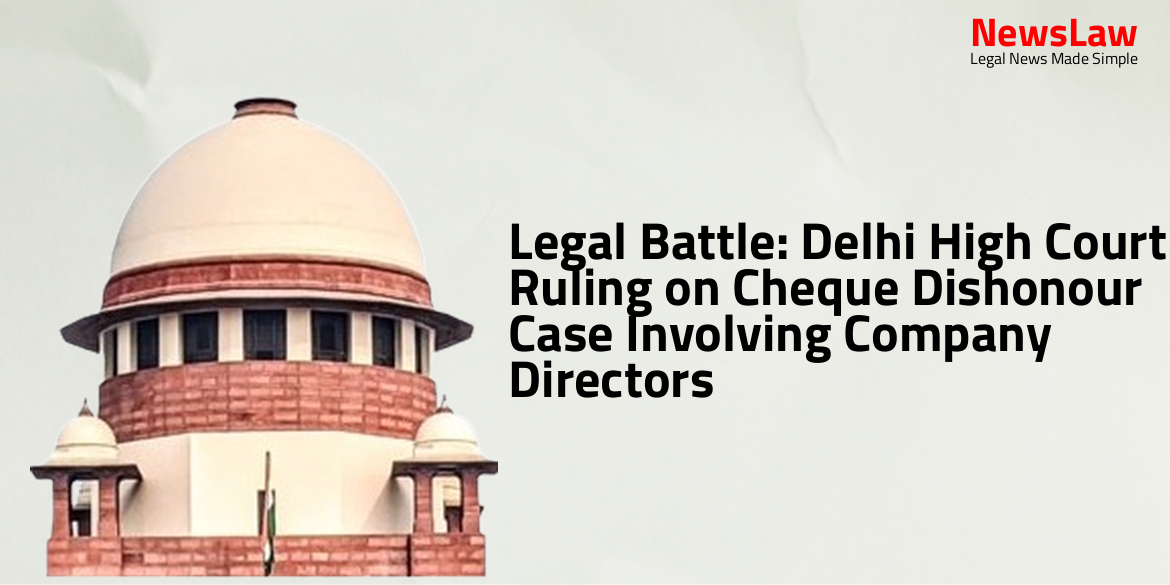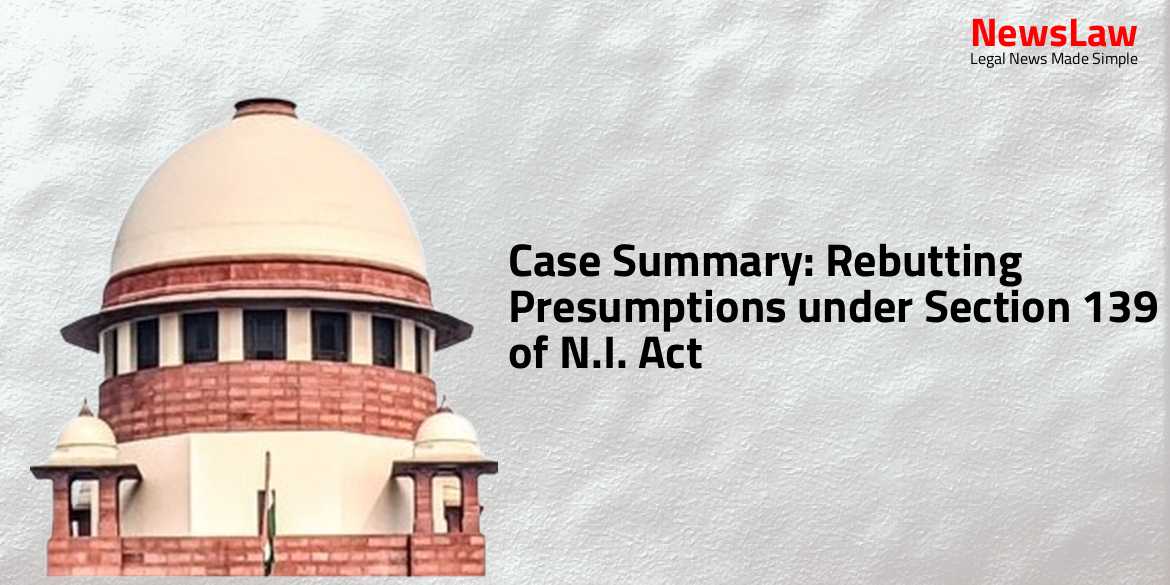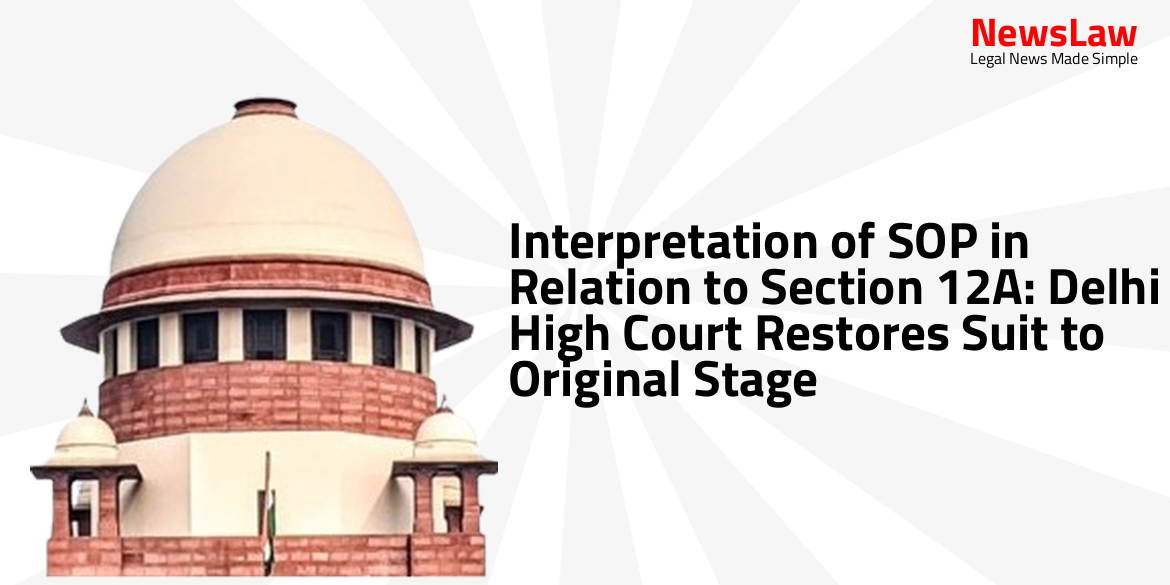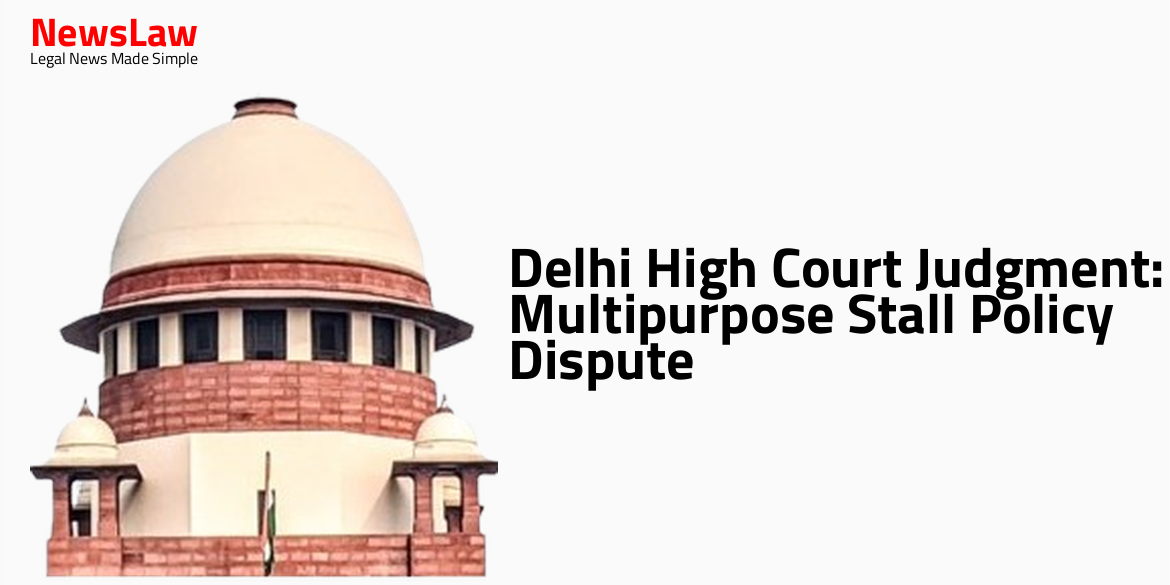In a recent case before the Delhi High Court, a significant ruling was given regarding a dispute over cheque dishonour involving company directors. The case delves into the complexities of liability under Section 138 of the NI Act, and the legal obligations of individuals in charge of company conduct during pertinent events. Follow this intriguing legal battle closely to understand the nuances of corporate responsibility and legal accountability in such matters.
Facts
- Respondent No.1 issued a rejoinder notice on 25.02.2022 after no payment was made
- Cheques with Respondent No.1 could be encashed for any payment due from Respondent No.2 as per Clause 11 of the Agreement
- Invoice for 1,500 sets of CMA Guide Books was supposed to be paid in advance as per Clause 1(d) of Annexure-A, but delivery was made before payment
- Three cheques presented by Respondent No.1 were returned unpaid with ‘Stop Payment’ remarks on 05.01.2022
- Statutory Demand Notice was issued on 02.02.2022 to the Petitioner and Respondent Nos. 2-5 after non-payment
- Petitioner and Respondent Nos. 2-5 replied on 16.02.2022 to the email dated 16.09.2021 for a total sum of Rs. 1,39,62,000/, but payment was not made
Arguments
- The petitioner’s counsel argued that the petitioner cannot be held liable for the dishonour of the cheques as it was done with malicious intent due to the petitioner leaving the services of the company.
- The petitioner claims that the complaint was filed out of vengeance for him joining another company as a Director.
- Transactions between the parties started from an invoice dated 20.10.2020 when the petitioner was the Managing Director of the company.
- The respondent’s counsel highlighted that the petitioner did not dispute receiving a legal notice of demand as the in-charge of the accused company.
- The Supreme Court clarified that different persons can be in charge of the company during the series of events leading to the offence under Section 138 of the NI Act.
- The date of the petitioner’s appointment as a Director of the accused company is stated as 01.11.2021.
- The respondent’s counsel argues that the petitioner cannot escape liability under Section 141 of the NI Act even if he was not a Director when the cheques were issued.
- It is mentioned that post-dated cheques were handed over by the accused company to the complainant company as security for the liability owed.
Analysis
- The petitioner, being the Director of the main accused Company, is prima facie liable under Section 141 of the NI Act.
- The petitioner does not dispute his position as a Director of the Company during the relevant events involving the dishonour of the cheques.
- The cheques were presented, dishonored, demand notice sent and received, and no payment was made despite a reply to the demand notice.
- The ingredients of the offence under Section 138 of the NI Act fructified during the petitioner’s tenure as Director of the Company.
- Every person in charge and responsible for the company’s conduct when the offense components occurred may be proceeded against but not punished if proves lack of knowledge and due diligence.
- The burden of proof rests on the person charged.
- The time of offense for dishonour of cheque is not strictly at demand notice but at each essential act of commission or omission.
- Section 482 of the Cr.P.C. cannot be used to dismiss a complaint or FIR at an initial stage
- This is particularly important when a disputed question of fact is involved
- The power under Section 482 must be exercised sparingly
- It should only be used in the rarest of rare cases
- The appellant was aggrieved by the order passed by the High Court rejecting his bail application in a case related to attempt to murder
- The appellant contended that the impugned order was passed without considering his medical condition and the fact that he had already spent significant time in custody
- The appellant argued that there was no likelihood of him absconding or tampering with evidence if granted bail
- The Supreme Court analyzed the facts and circumstances of the case and noted that the appellant’s medical condition required regular medical supervision and treatment
- The Court observed that the appellant had already undergone 9 surgeries and needed further medical attention, which would be difficult to receive in custody
- Considering the appellant’s medical condition, the Court granted him bail on certain conditions to ensure his presence during trial proceedings
Decision
- Pending application dismissed
- Conclusion 15: The petition has no merit
Case Title: VIKAS GUPTA Vs. WILEY INDIA PRIVATE LIMITED & ORS. (2024:DHC:3886)
Case Number: CRL.M.C.-3686/2022



